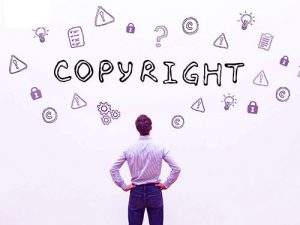Registration of Copyright in India
The registration of a copyright is not mandatory in India. Copyright subsisting in the original literary, musical, artistic, or dramatic work as soon as it is expressed by the author of the work and he gains exclusive rights with respect to that particular work to reproduce, publish, make adaptations or perform, etc. which has been guaranteed under section 14 of the Copyright Act. The copyright law in India provides for civil as well as criminal remedies upon infringement under the Copyright act.

Even though it has been held in various judgments that the registration of copyright is not necessary and it does not create any new right in respect of the owner and it is also not a necessary requirement for initiating any action or a remedy for infringement.
But, in the judgment delivered by the Bombay High Court in Dhiraj Dharamdas Dewani v. Sonal Info Systems Pvt. Ltd., an exact contrary position as it has been stated above was held. It was held that registration of copyright is a mandatory condition if the copyright owner wants to pursue an action or seek any remedies available in the Copyright Act. It was observed that the word ‘may’ used in Section 45 has to be interpreted as “shall” as for seeking a remedy or initiating action against infringement, it must be proved that the infringer was having knowledge of the copyright subsisting in the work. Therefore, it becomes very difficult to establish the knowledge of the infringer, if the copyright has not been registered and its particulars not being recorded in the copyright register.
Although Copyright registration is not compulsory, still it is preferable to get it registered as the registration certificate stands as valid documentary evidence, which can be produced before the court at the time a suit for infringement of copyright is filed. Therefore, it is advisable to get the copyright registered as the proof of ownership is to be established first in order to claim any damages after an action for infringement is initiated. Conclusively, the registration of copyright makes the litigation and availing of the remedies easier for the owner of the copyright in cases where infringement has happened. Therefore, if the copyright is registered, proving infringement becomes relatively easier and expeditious.
Author: Pratyush Rao, Intern at IP and Legal Filings, and can be reached at support@ipandlegalfilings.com.


